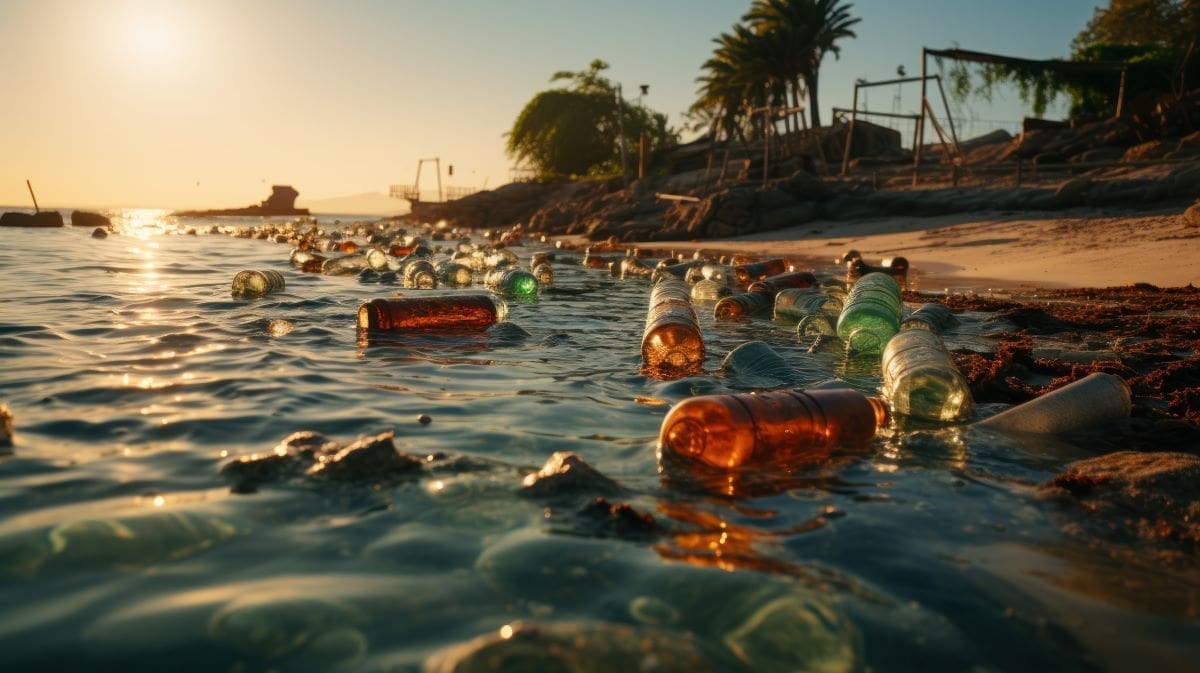By Sara Hussein and Roland de Courson | AFP
Busan, South Korea – A final round of talks on a treaty to end plastic pollution opened on Monday, with deep differences between nations emerging almost immediately.
The meeting opened just hours after a chaotic end to the COP29 climate talks in Baku, which agreed to a boost in climate funding that developing countries slammed as insufficient.
Opening the meeting, the Ecuadorian diplomat chairing the talks warned nations that the conference was about “far more than drafting an international treaty.”
“It is about humanity rising to meet an existential challenge,” Luis Vayas Valdivieso told an opening plenary in South Korea’s Busan.
Plastic pollution is so ubiquitous that it has been found in clouds, the deepest ocean trenches and even human breastmilk.
And while almost everyone agrees it is a problem, there is less consensus on how to solve it.
Among the most contentious issues are whether the treaty should cap plastic production, a possible ban on chemicals feared toxic to human health, and how to pay for implementation.
The deep differences have dogged four previous rounds of talks over the last two years, resulting in a lengthy and contradictory draft treaty running over 70 pages.
Valdivieso has produced an alternative document intended to synthesise the views of delegations and move negotiations forward.
But several countries, including Russia and India, warned Monday that they were not willing to use it as a basis for negotiations.
“The reality is that many countries do not see themselves represented in this paper,” warned Saudi Arabia’s delegation head Eyad Aljubran, speaking on behalf of the Arab group.
In 2019, the world produced around 460 million tonnes of plastic, a figure that has doubled since 2000, according to the Organisation for Economic Co-operation and Development.
Plastic production is expected to triple by 2060.
More than 90 percent of plastic is not recycled, with over 20 million tonnes leaking into the environment, often after just a few minutes of use.
Plastic also accounts for around three percent of global emissions, mostly linked to its production from fossil fuels.
– ‘We are not going to wait’ –
Some countries, including the so-called High Ambition Coalition (HAC), which groups many African, Asian and European nations, want the treaty to address the entire “lifecycle” of plastics.
That means limiting production, redesigning products for reuse and recycling, and addressing waste.
On the other side are countries, largely oil producers like Saudi Arabia and Russia, who want a downstream focus on waste alone.
The HAC wants binding global targets on reducing production and warned ahead of the Busan talks that “vested interests” should not be allowed to hamper a deal.
Some observers believe the talks are likely to falter and be extended — especially after the difficult negotiations at UN climate and biodiversity conferences in recent weeks.
But both UN Environment Programme chief Inger Andersen and Valdivieso insist a deal must be reached in Busan. That has some environmental groups worried an agreement will be watered down to ensure something is signed.
“After two back-to-back failed summits on nature and climate, Busan needs to be a refuge from further nature and climate inaction,” the WWF warned Monday.
Key to any accord will be the United States and China, neither of which have openly sided with either bloc.
Earlier this year, Washington raised hopes among environmentalists by signalling support for some limits on production, a position that is reportedly now being rowed back.
The election of Donald Trump has also raised questions about how ambitious the US delegation will be, and whether negotiators should seek their support if a treaty is unlikely to be ratified by Washington.
Despite the challenging start, the UN’s Andersen counselled patience, noting the Paris climate agreement had taken over two decades to reach clear targets for global warming.
“We are only in the first few hours,” she said.
“We have to get something with targets and we’re not going to wait 21 years for it.”
sah/cwl
© Agence France-Presse
Featured image credit: nuraghies | Freepik.com




